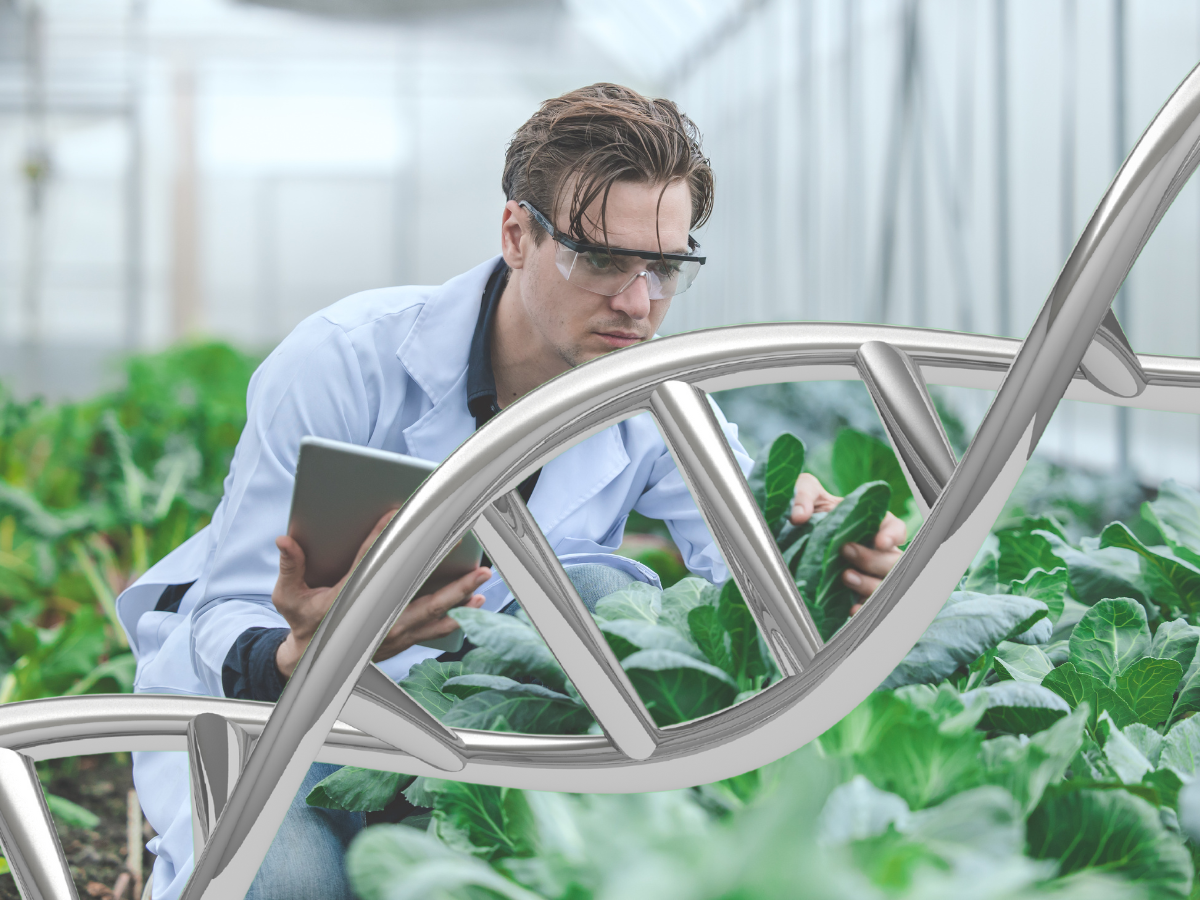Biotechnology in Agriculture: GMOs and Beyond

Biotechnology is transforming agriculture by introducing innovative solutions to enhance crop productivity, improve resilience, and promote sustainability. From genetically modified organisms (GMOs) to advanced gene-editing techniques, biotechnology is at the forefront of agricultural innovation. This blog explores the role of biotechnology in modern agriculture, the benefits and concerns associated with GMOs, and the potential of emerging biotechnological advancements.
Understanding Biotechnology in Agriculture
Biotechnology involves the use of scientific techniques to modify and improve plants, animals, and microorganisms. In agriculture, biotechnology encompasses a range of practices, including genetic modification, gene editing, and the development of bio-based products. These technologies aim to enhance crop yields, improve resistance to pests and diseases, and reduce the environmental impact of farming.
GMOs: The Foundation of Agricultural Biotechnology
Genetically modified organisms (GMOs) are organisms whose genetic material has been altered using genetic engineering techniques. GMOs have been widely adopted in agriculture to introduce desirable traits, such as herbicide resistance, pest resistance, and improved nutritional content.
Herbicide-Resistant Crops
Herbicide-resistant GMOs, such as Roundup Ready soybeans, allow farmers to control weeds without damaging the crop. This reduces the need for tillage, conserving soil structure and reducing erosion.
Pest-Resistant Crops
Bt crops, such as Bt cotton and Bt maize, contain genes from the bacterium Bacillus thuringiensis, which produces a protein toxic to certain pests. This reduces the need for chemical pesticides, promoting a healthier environment and safer working conditions for farmers.
Nutritionally Enhanced Crops
GMOs like Golden Rice are engineered to contain higher levels of essential nutrients. Golden Rice, for example, is enriched with beta-carotene, a precursor of vitamin A, addressing vitamin A deficiency in regions where rice is a staple food.
Benefits of GMOs
GMOs can significantly boost crop yields by enhancing resistance to pests, diseases, and environmental stresses. This is crucial for meeting the growing global food demand.
The use of pest-resistant and herbicide-tolerant GMOs reduces the need for chemical pesticides and herbicides, lowering the environmental impact and promoting sustainable farming practices. GMOs can be engineered to contain higher levels of vitamins, minerals, and other nutrients, improving the nutritional quality of food and addressing malnutrition. Biotechnology can develop crops that are more resilient to climate change, such as drought-tolerant or salt-tolerant varieties. This enhances food security in regions vulnerable to changing climatic conditions.
Concerns and Challenges
There are concerns about the potential environmental impact of GMOs, such as the development of herbicide-resistant weeds and the impact on non-target organisms. Continuous monitoring and responsible management practices are essential to mitigate these risks.
While GMOs undergo rigorous testing for safety, there is ongoing debate about their long-term health effects. Ensuring transparency in the regulatory process and conducting comprehensive safety assessments are critical.
The use of biotechnology in agriculture raises ethical and socioeconomic questions, such as the control of seed patents by a few large corporations and the impact on small-scale farmers. Addressing these issues requires fair policies and equitable access to biotechnology.
Beyond GMOs: Emerging Biotechnological Advancements
CRISPR-Cas9 and Gene Editing
CRISPR-Cas9 is a revolutionary gene-editing tool that allows precise modifications to an organism’s DNA. Unlike traditional GMOs, CRISPR can make targeted changes without introducing foreign genes. This technology holds immense potential for developing crops with enhanced traits, such as improved disease resistance and increased nutritional content.
Synthetic Biology
Synthetic biology involves designing and constructing new biological parts, devices, and systems. In agriculture, synthetic biology can create bio-based products, such as biodegradable plastics and biofuels, reducing reliance on fossil fuels and promoting sustainability.
Microbial Biotechnology
Microbial biotechnology harnesses the power of beneficial microbes to improve soil health, enhance nutrient uptake, and promote plant growth. Innovations such as biofertilizers and biopesticides offer environmentally friendly alternatives to chemical inputs.
Plant Breeding Innovations
Advanced biotechnological techniques are improving traditional plant breeding methods. Marker-assisted selection, for example, uses genetic markers to identify desirable traits, accelerating the development of improved crop varieties.
The future of biotechnology in agriculture is bright, with ongoing advancements promising to address the challenges of food security, climate change, and sustainability. Continued investment in research and development, coupled with supportive policies and public engagement, will drive the adoption of biotechnological solutions in agriculture. As technology evolves, the integration of biotechnology with other emerging technologies, such as AI and IoT, will further enhance the potential for smart, sustainable farming.
Biotechnology is playing a transformative role in modern agriculture, offering innovative solutions to enhance productivity, improve resilience, and promote sustainability. From GMOs to advanced gene-editing techniques, biotechnological advancements are addressing the challenges of food security and environmental sustainability. While there are concerns and challenges associated with biotechnology, responsible use, transparent regulation, and continued research are key to realizing its full potential. As the UK continues to invest in agricultural biotechnology, the future of farming looks promising, with the potential to create a more resilient, sustainable, and secure food system.






